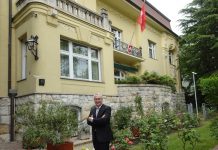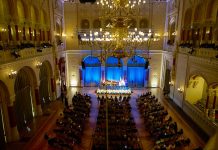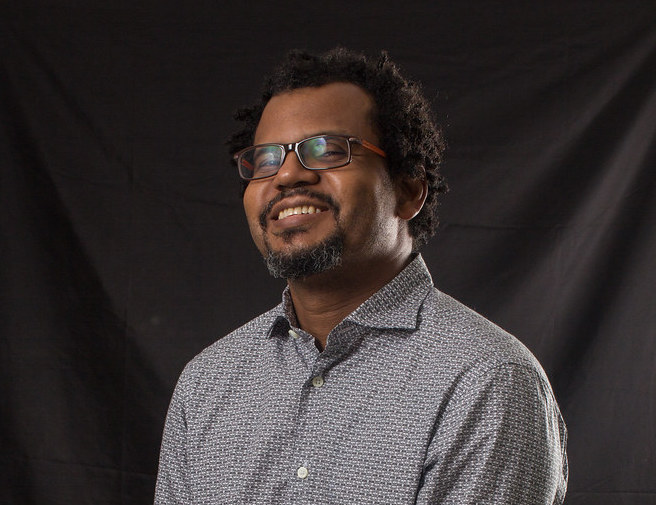“Colombian nation would not exist without the Afro-descendant population”
Edited by Anna Popper
Colombia has one of the largest Afro-descendant populations in Latin America. According to a post-census survey, the government estimates that Afro-Colombians constitute 10% of the total population, representing about 4.67 million Afro-descendants. There are Afro-Colombians in every major city in the country. It is estimated that one million are living in the capital Bogotá. The vast majority of Afro-Colombians live in urban and peri-urban areas.
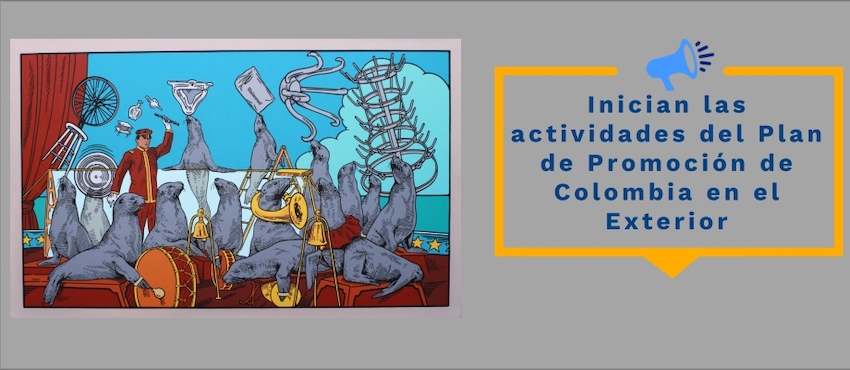
Professor Ortiz Cassiani, it is a great pleasure to welcome you in Budapest on the invitation of the Embassy of Colombia in Hungary, as part of the ‘Plan de Promoción de Colombia en el Exterior’ initiated by the Colombian Ministry of Foreign Affairs. Please let us know the purpose of your visit.
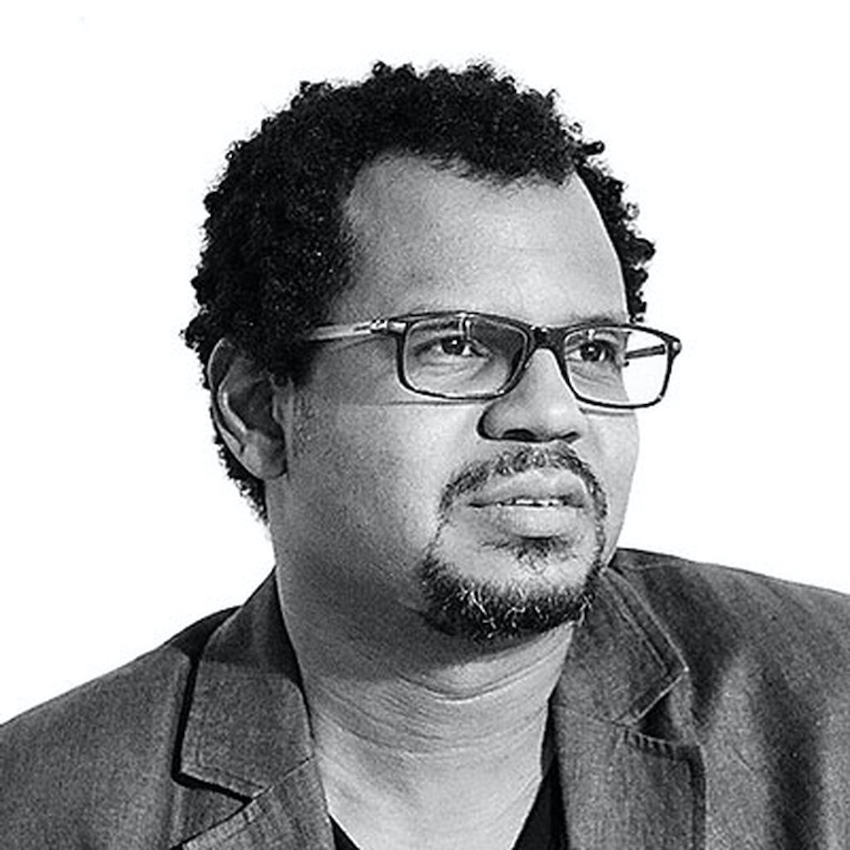
– I am a historian and writer, and one of the topics that concerns me most is the construction of nations: what variables operate according to the historical situation in this process that is in constant evaluation, review and redefinition. Within this dynamic, I am interested in the place that has been given to Afro-descendants – and that they give themselves according to their political and cultural projects – in the discourse of construction of the Colombian nation. Starting from this, there is one fact that acts as a foundational element, namely that this is their condition as descendants of the diaspora, made up of people taken from the African continent. Due to these concerns, I was invited by the Vice Presidency of Colombia, headed by Vice President Francia Márquez Mina, as a member of the academic commission that was part of the delegation that visited the countries of South Africa, Kenya and Ethiopia in May this year.
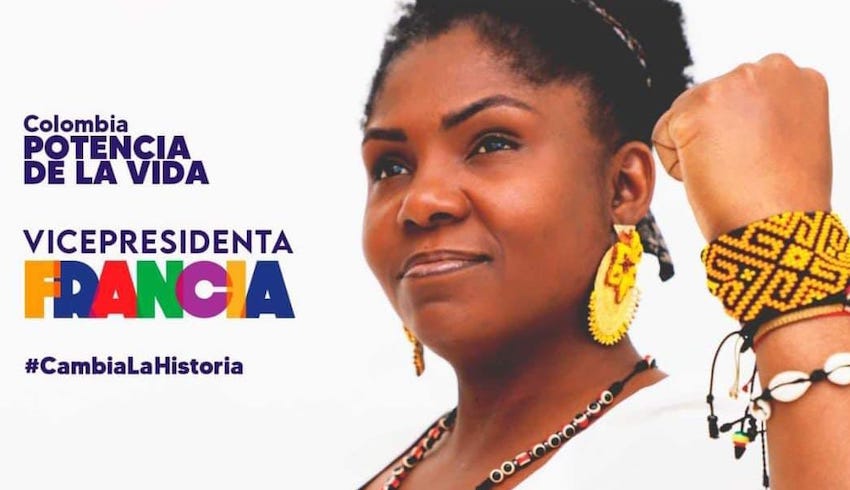
This relationship with the new situation in the treatment of Colombia’s international politics, in which the recognition of diversity and the Afro-descendant population plays a central role, is the reason why this invitation to Hungary has been given.
As an Afro-Colombian, can you trace your African ancestry back?
– In recent times, as a result of political strengthening, many Afro-descendants have tried to find their African origins through a certain genealogical practice, which is sometimes extremely expensive due to the difficulties with written sources. In this process there are people who have decided to take on new names related to Africa, which seems fine to me, but I understand that it is not the only thing that defines identities. In my particular case, it is not a concern that keeps me up at night, there are other certainties in which the meaning of having part of the heritage of the diaspora, but also their actions in the territory where they had to live to become subjects intersects the struggles for the recognition of their human condition, which serves as a solid reference for me. This even allows me to feel part of a much broader community than the one sheltered by national borders and to assume myself as a member of the large and varied Afro-Caribbean community. Much of this process is based on intuition. For example, Jorge Luis Borges (Argentine writer) said that some things are simply felt and what is elemental cannot be defined. In Soweto, when Nelson Mandela was freed, I saw that people were dancing in the same way as the black inhabitants of the popular neighbourhoods of Cartagena de Indias in the Colombian Caribbean. There are memories of the body that the dancer simply feels and that he does not or cannot explain or define. Of course, as a researcher, I can find logic beyond sensibilities.
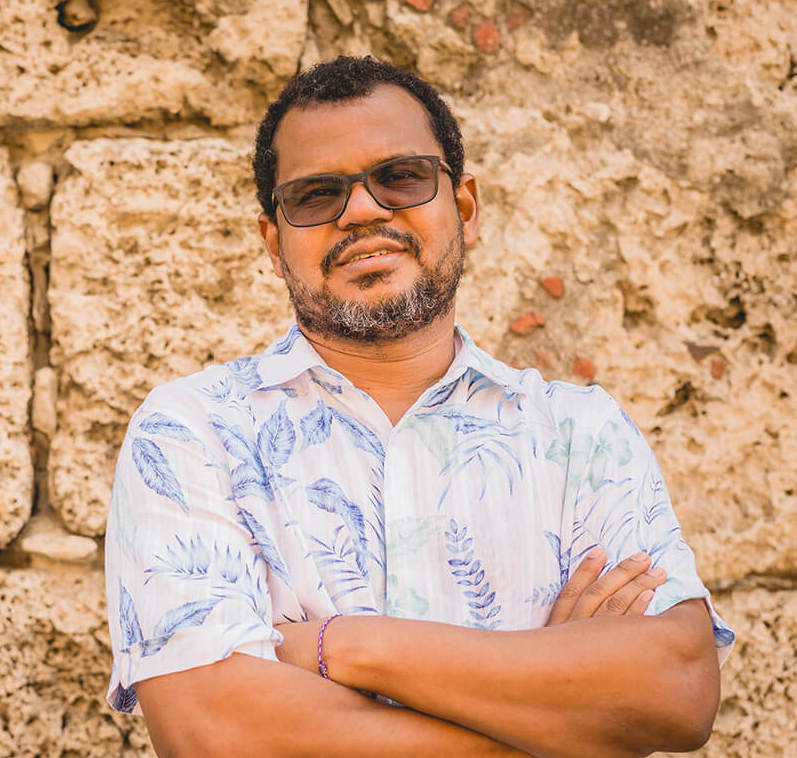
Colombia is home to one of the largest communities of African origin in Latin America, which has a specific historical background. What role does the almost 5 million strong African diaspora play in the Colombian nation-building process? Do they form an organized community in your country with a population of 52 million?
– We are a community only surpassed in number by Brazil, but we know that in Brazil slavery lasted until the end of the 19th century, that the economy depended on enslaved labour based on the plantation model, and that the country, which is practically a continent, has 215 million inhabitants. Speaking of numbers, there are also serious difficulties in counting the Afro-descendant population: sometimes the interviewers do not ask about the ethnic variable or the questions are not well formulated, as happened in the last census, since the statements that speak of a greater number than what have been recorded in the last census of Afro-descendants in the country are not unfounded.
The importance of diaspora in the nation is something that I have been reflecting on lately and every time I am asked this question. I think that one cannot only talk about contributions as if the idea of a nation could be isolated, as if there was a clearly defined essence of the nation and, on the other hand, the Afro-descendant peoples as contributors to this essence, but if they are separated from the nation as it is understood, the nation would still exists. What I am pointing out is that, quite simply and honestly, what we call the Colombian nation, it would not exist without the Afro-descendant population, because Afro-descendants are a constitutive part of the nation from the beginning. Otherwise what we call Colombia, it would be something completely different. What we cannot ignore is that given the historical conditions of Afro-descendants, the nation is built on racist principles – as it is the case in many parts of the world – in which the most denied are the Afro-descendants, and precisely that has generated some necessary struggles that have results. A clear example of this is that today we have an Afro-descendant Vice President, which would have been unthinkable thirty, forty or fifty years ago.

Of course it hasn’t been easy and it continues to be difficult, but the most important political fact in the two centuries we have been a nation is that today an Afro-descendant woman from a humble background is the nation’s Vice President. This is also the best example of official recognition since the 1991 Constitution of Colombia as a multi-ethnic and multicultural country, as well as a sample of the historical dynamics and political processes of Afro-descendant communities from different angles and levels.
How do you assess the social and economic situation, integration and perception of citizens of African origin in your country?
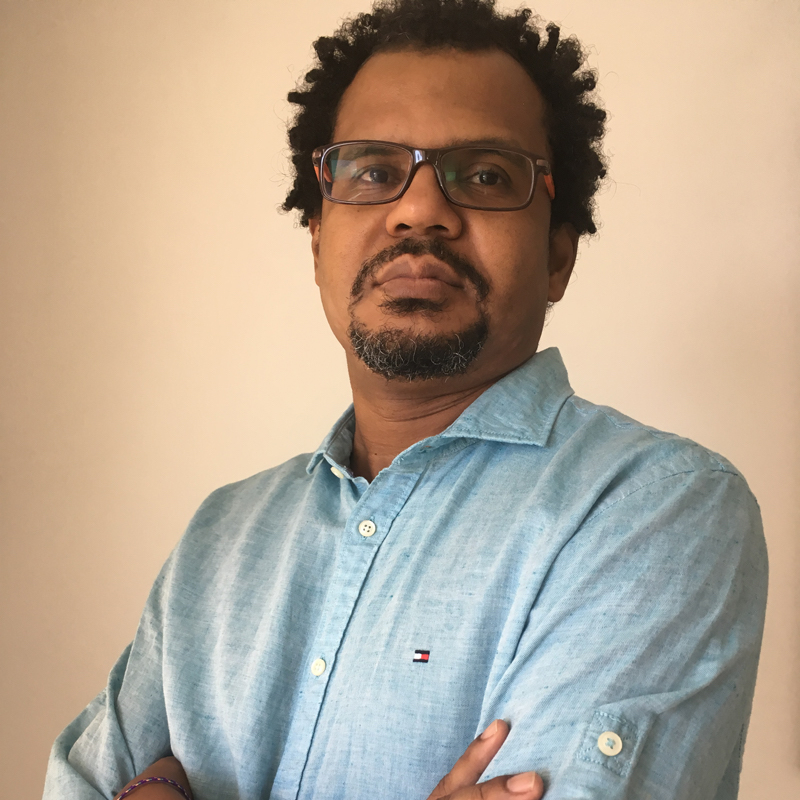
– Saying integration may sound problematic because, as I argued in the answer to the previous question, the nation cannot be understood without the Afro presence. They are a constitutive part of the nation. So talking about integration would mean as if they had just arrived and policies had to be created to integrate them. They have been there from the beginning and the struggle is to close the gaps that define the lesser opportunities for Afro-descendants on economic, political and cultural levels due to the historical place to which their ancestors were subjected. And this gap is based on a racist perception that grants moral behaviour to certain populations based on their origin and skin colour. Fortunately, there is increasing awareness of the need to close these gaps, but we also know that in some cases this goes hand in hand with an increase in racial prejudice. They did not appear out of nowhere, they become visible again to the extent that the racialized population also becomes visible.
Furthermore, in the Colombian case there is a strong relationship between class and race. Afro-descendant people tend to be the people with the fewest economic resources where they form the majority, and the departments (political-administrative units into which the country is divided) with an Afro-majority are the poorest. This shows that race plays as a variable of disadvantage and that there is increasing awareness of it, so policies are drawn to reduce and terminate these structural disadvantages.
How does the African community, with its specific culture and identity, contribute to the country’s development?
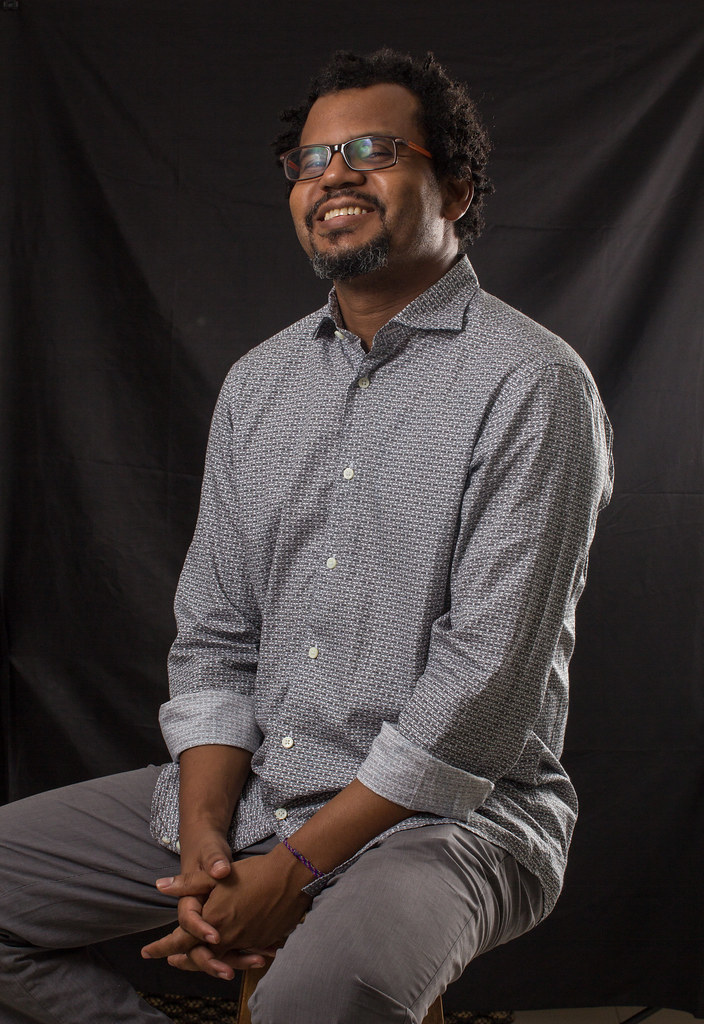
– Well, we could talk about how in defining diversity as a fundamental value of the nation and the Afro-descendant population has a prominent role, which translates into a cultural offer that positions the country. It is a seal not only of quality, but also of appreciated aesthetic commitment. We can also say that in these times of climate crisis, the vision and the way some Afro communities treat the territory constitute important values. A certain knowledge is necessary for the development of much more efficient, equitable public policies that protect the environment, and are of exceptional value in these times of climate concerns. All this without discounting the prominent roles in academia, literature and the field of fine arts in general. There is one thing that we sometimes forget: the cultural identity or identities in musical terms – in their historical evolution have always been of Afro characteristics. What has been heard and enjoyed most musically in the country is Afro, and what represents us to the extern as a nation is also of Afro origin.
What topics did you cover in your lectures in Szeged and at ELTE University in Budapest? Please talk about your research areas.
– What I usually do is cultural history or history of culture and at this point one of my concerns – although I don’t only deal with that – is the Afro population. The perception of these groups is of great interest to me, but also the self-perception and the evolution of these processes. In this sense, I pay attention to the language that names them and the way in which they are named, which takes me back to the struggles and negotiations that are established to find a better place in the midst of a society that left a historical stain on them with enslavement. Of course I am interested in the topic of black enslavement, but I’m more interested in the fact that amidst the denial of humanity, there was no moment when they tried to become social subjects through the most diverse means. Traditional studies in Colombia usually address the black issue in a classic periodisation of slavery and then freedom. I am convinced that one cannot talk about enslavement without talking about freedom, because from the moment they are landed in the ports, strategies for freedom or for better living conditions has begun, which is a process of construction of political subjects.
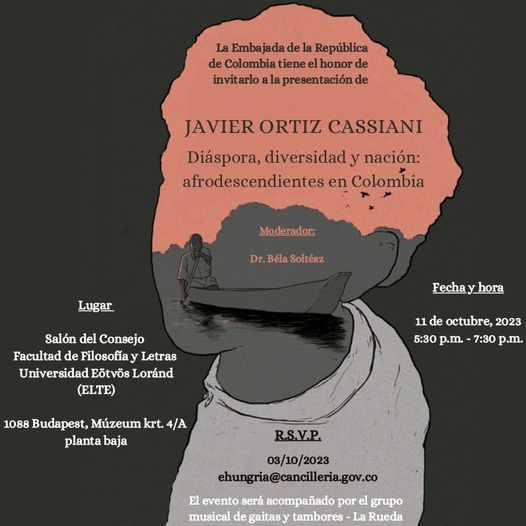





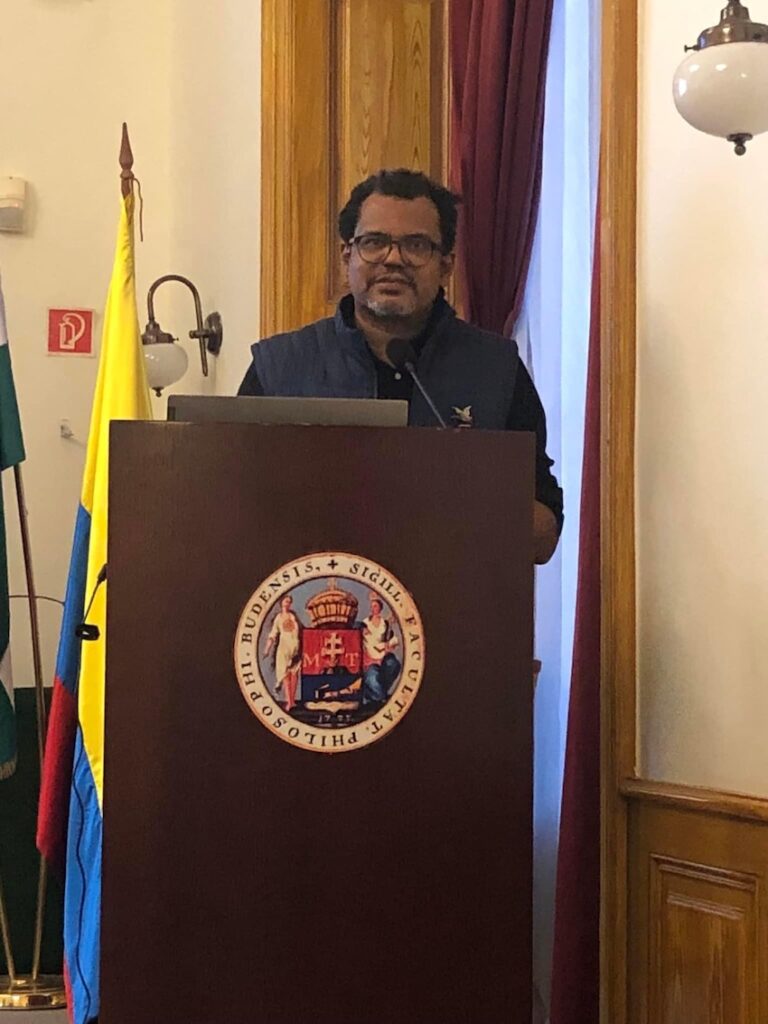
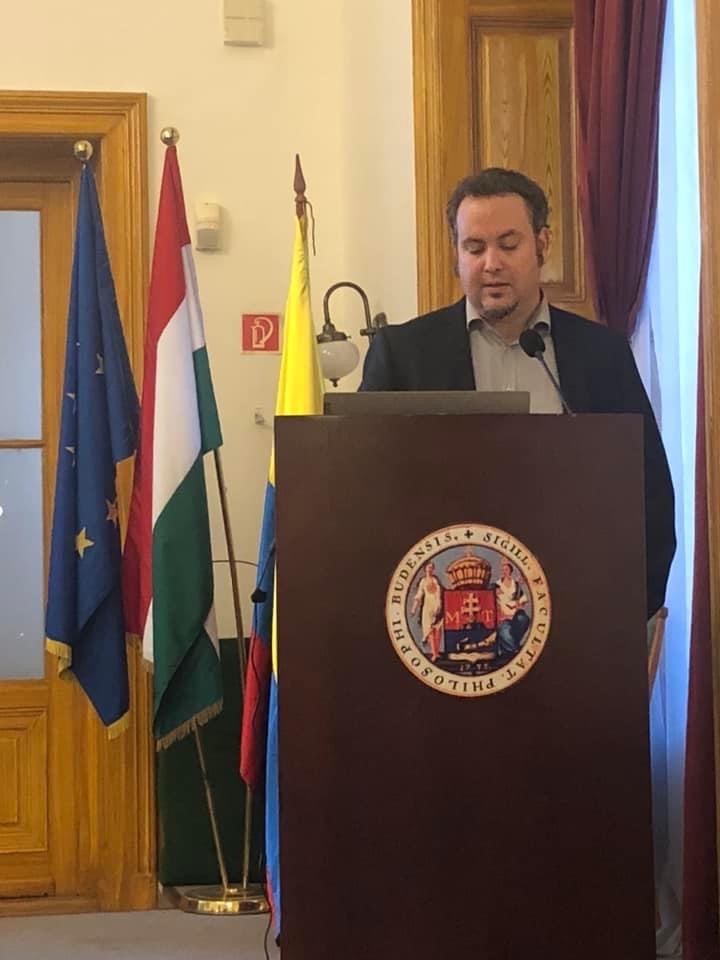
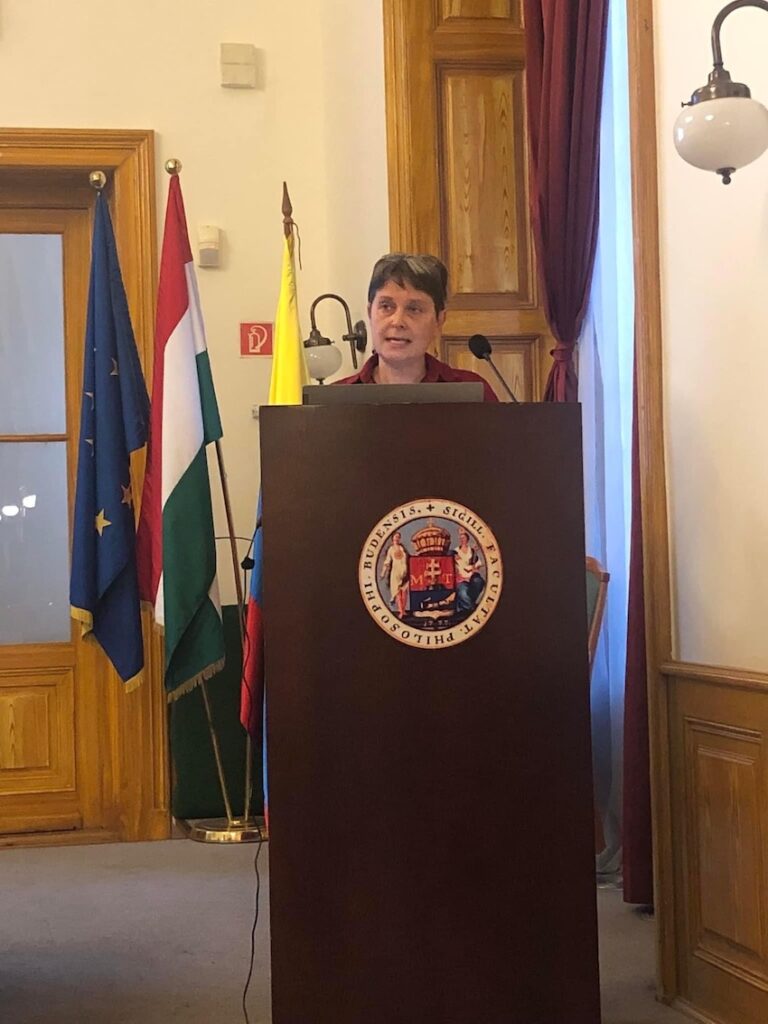
The topics I covered at ELTE University in Budapest and at the University of Szeged (lectures entitled: Diaspora, diversity and nation: Afro-descendants in Colombia) are related to this, but since they are not so common topics in a country like Hungary, I initially focused on building a didactics on the perception of Colombia abroad and how in that perception the Afro characteristics do not appear as constitutive elements of Colombian society. To show the connection, the first exercise was to read a list of common surnames in some areas of the country such as Carabalí, Mina, Balanta, Congo, Lucumí, Zape, Arará, Angola… which are evidently related to Africa. Then I focused on Colombia’s relationship with the greater Caribbean and the Caribbean as a bond in the relationship with Africa and the Caribbean as a space for the construction of political modernity and how this explains that in the Colombian case the Caribbean areas, specifically in Cartagena de Indias, has seen the most radical independence movement from Spain in the country with the participation of a significant number of Afro-descendants with their own political agenda, the different strategies to achieve freedom, the role of women and the place of Afro-descendants when the need to construct the modern nation-state appears. I also addressed the differences in the two regions with the largest Afro-descendant population in Colombia, the Caribbean and the Pacific, and how these differences become evident in the development of the construction of Afro-politics and militancy.
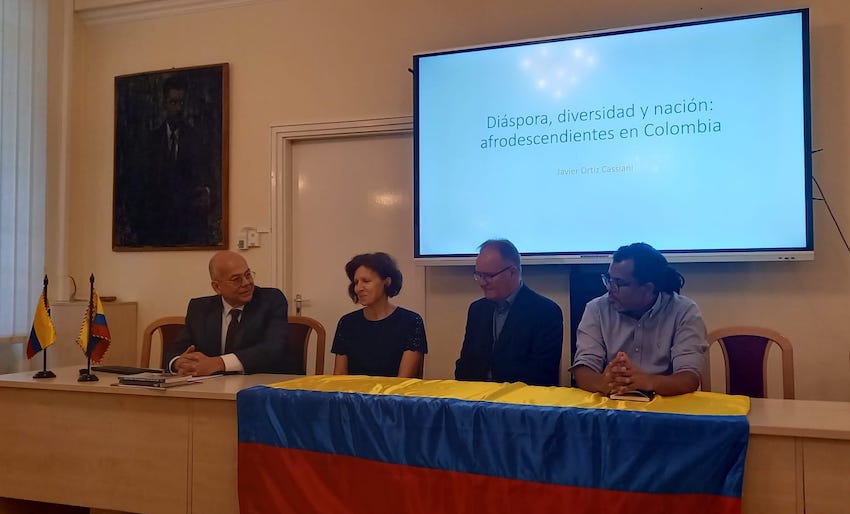
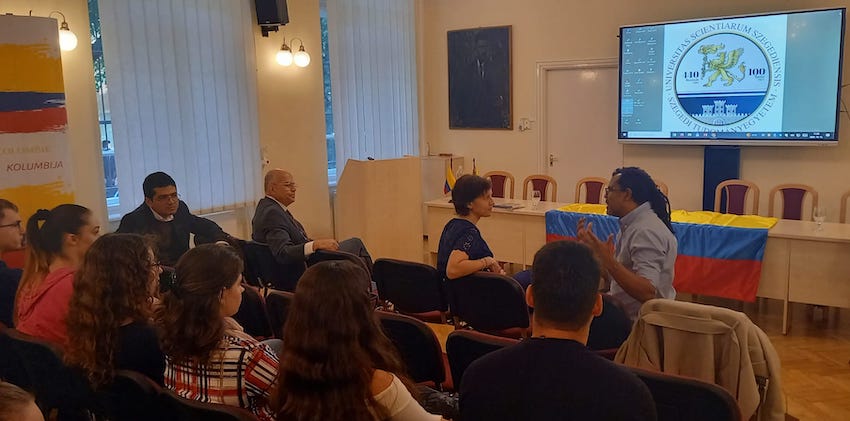
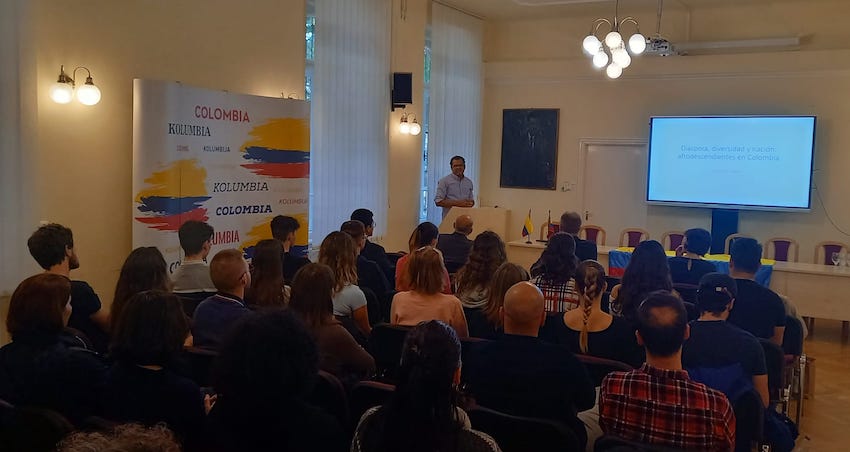
In addition to your career as a historian, you are also known as a writer and journalist. What is the theme of one of your books “Bailar con las trompetas del apocalipsis” (Dance with the Trumpets of the Apocalypse)?
– I normally write essays, chronicles and opinion columns in different media. Over time I accumulate a series of materials and between them later, when I review them again, I begin to find connections that perhaps I had not thought of in the rush of deliveries – that is where the book begins to be born. Afterwards, the following step was an editing work to update and expand some texts and classify them into chapters. In addition to a brief entry that serves as an introduction, the book was organized into four parts: the first, “Stories at ground level” is in tune with the end of the introduction to the extent that the texts that make it up collect the spirit of what Michel de Certeau (French Jesuit priest and scholar) calls writing at ground level, with the steps.
In order to tell more inclusive and diverse stories, which are capable of putting paradoxes on stage, it is important to get off the high altitudes, despite the great view they offer, and walk around the cities and places. Precisely the stories that appear here correspond to places and situations, including, of course, people, but not a specific character. “Chiaroscuro”, the second part of the book, on the other hand, has the tone of a report and a historical essay with protagonists through an intimate approach to the characters, some of them occupy the pages of official or professional and documented history books. The third part, “Plagued Days” were short texts written for the times of coronavirus, so they are articles that revisit historical pandemics from the present with a certain apocalyptic charge. But there, as the title of the book suggests, there are always aesthetic and ethical ways to escape the apocalypse, because many of those who were affected by the pandemic have always lived in the apocalypse and what they have learned is to dance with its trumpets. The last part is titled “Family Airs”, with a wink to the title of a wonderful book by the Mexican writer Carlos Monsiváis, because what appears there are five familiar, intimate texts – of course, connected to history that is usually written with a capital letter – but without fear of putting their part of the popular kitsch of my sentimental education.
What impressions did you gain during your stay here for a few days?
– It is my first time in Hungary and I was pleasantly surprised by Budapest. I was in Szeged only for a few hours, but it was enough for me to leave with a very good impression. I think it has to do with the fact that I was born in Valledupar, a city with a river in the Colombian Caribbean that has different environmental characteristics and uses than the Danube and the Tisza, but also with the fact that they are cities on the banks of rivers at least generates a certain sentimental communion for me. Of course, being in Hungary, it is impossible not to think that this territory was involved through the House of the Austrians or the Habsburgs in the discovery, conquest and colonization of America. I was also surprised by the concern at the university level for Hispanic and Latin American studies and for Spanish as a language, and for the great sense of memory through the monuments and urban signage of Budapest, as well as its wealth of museums.
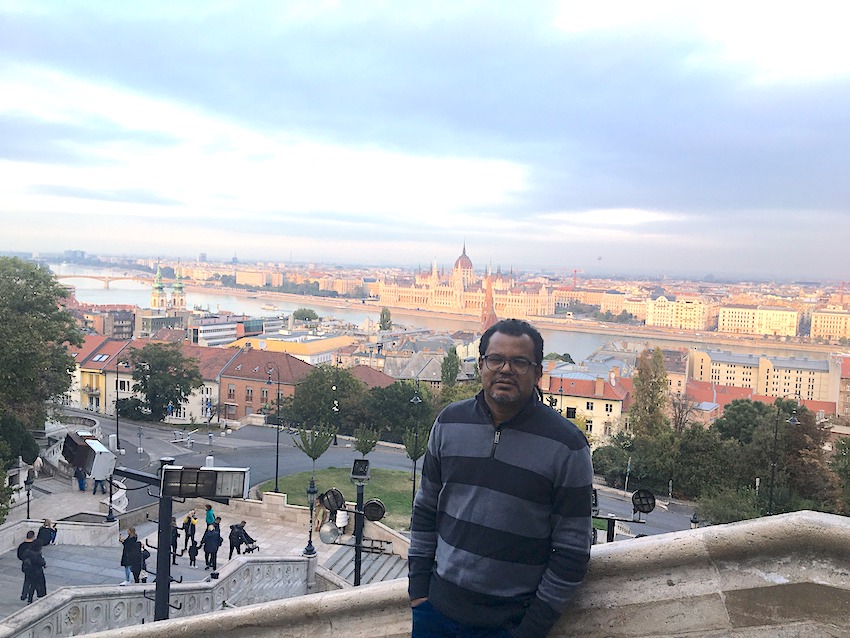
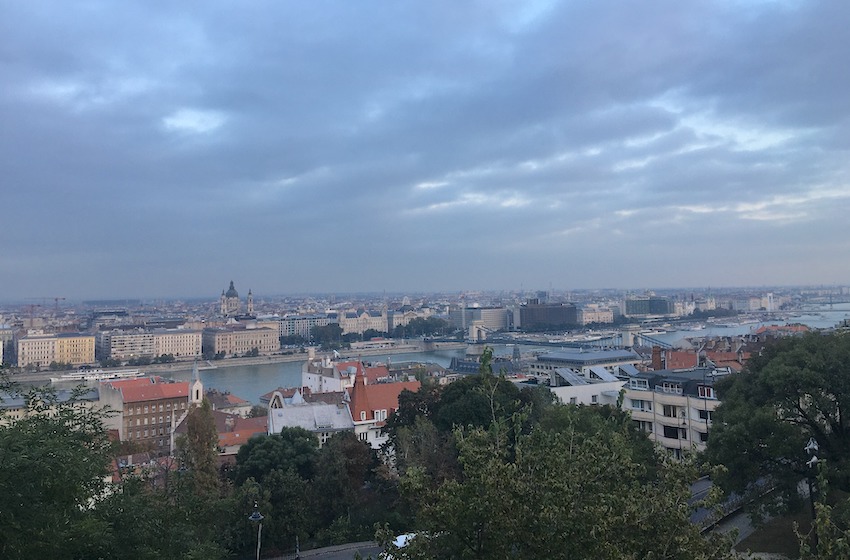

It happened to me, something that marked my stay in Budapest: prior to my presentation at ELTE, the former Hungarian diplomat and intellectual András Gulyás, who knows Colombia perfectly, approached me and told me about István Dely, a drum specialist (El Gurú del Tambor), who developed a teaching and artistic career in Colombia, where he got married and had children. I met István and attended several of his presentations in Colombia, but when András talked to me about him, I was aware of a fact that I already knew but only understood on this trip, and it is that István was Hungarian (he died last year). A Hungarian who, thanks to his interest in Yoruba religiosity and Afro music, ended up living in Africa and Cuba and then went to Colombia and developed an entire career as a teacher of African music to several generations of musicians in spaces for black people in Colombia. A Hungarian teaching about Africa in Colombia. This seemed like a kind of epiphany to me and I have a moral commitment to write something about István and organize some kind of event in his memory with the Embassy of Colombia in Hungary.
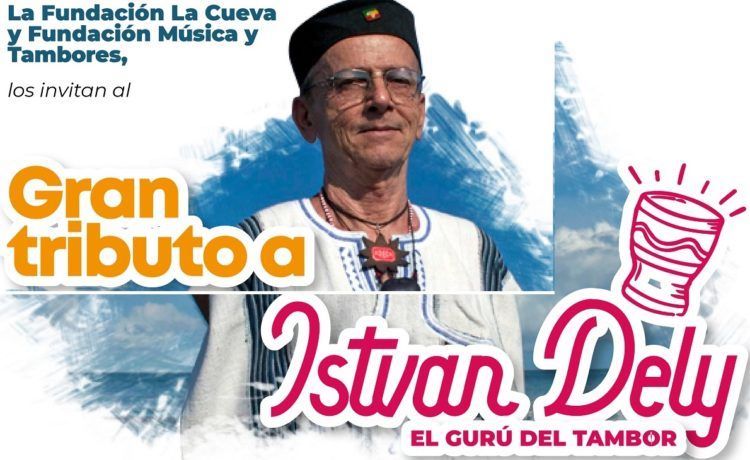
National minorities exist in almost every country in the world, they vary in number. The judgment of a country can often be measured by how it treats various minorities based on their ethnic, linguistic, cultural, religious or gender identities. How do you see this complex and multi-faceted issue when you approach this sensitive social question through scientific lens?
– I seriously believe that the first thing we must change is the language and stop calling them minorities because that already carries a connotation of aggregates that are not on equal terms with supposed majorities. In practice, of course, they are not on equal terms, but that is precisely the fight, to achieve greater equity and in that sense language has to contribute to that as well. The second thing is that I believe that we must start from the principle of humanity, a large part of the drama with certain ethnic groups is that in the construction of difference they are dehumanized, negative gestures and attitudes are attributed to them that tend to dehumanize. What must be achieved is to recognize that cultural difference is a value, not a mark to segregate, and that is where I believe that we must return to the universal human condition, that unites us in the human condition in the midst of differences. All of these require agreements that are even above the national level. It is paradoxical, because ethnic, linguistic, cultural and religious identity are part of the principles on which nation-states are built, but currently, in order to achieve greater respect for these identities, policies must be outlined above nation-states, which are, like identities, constructions themselves. We must not be afraid to give up some sovereignty in political and cultural terms in order to achieve greater equity and well-being. It is demanded by such important issue as the case of migration in recent times. Hungary itself, for example. One of the things that I have realized in this short time here is that the borders of the nation’s identity, due to the historical events that the territory has gone through, do not coincide with the political-administrative border. We must deal with that, which implies diplomatic agreements with neighbours where the voice of these groups is represented, which is not just a national propaganda speech.
After returning to Colombia, Professor Ortiz described his impressions and experiences gained during his short stay in Hungary in an article published in El Espectador, titled Hungary: the nation beyond the border. He was particularly impressed by the visit at the Ethnographic Museum in Budapest, which inspired him to these meaningful thoughts:
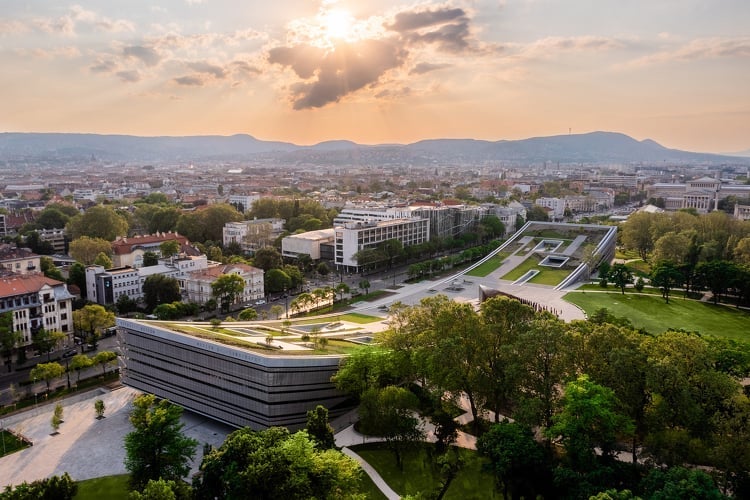
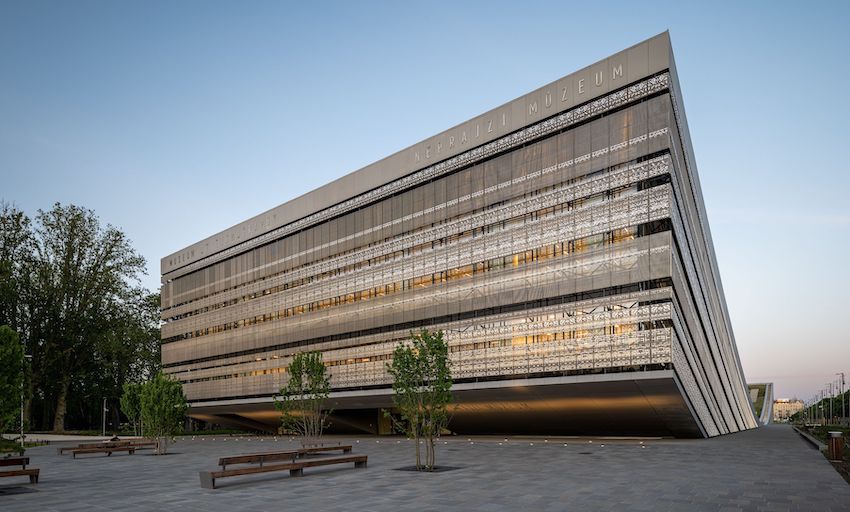
“One of the most surprising things when visiting the Ethnography Museum – which operates in a beautiful building, built for this purpose in complete harmony with the Városliget Park and the monument to the Hungarian Revolution of 1956 and the War of Independence in Budapest – is that the representative collections of the nation are made up of objects of which at least half of the total are from places that no longer belong politically to the country but at some point were part of the territory. It is a nation that sustains itself in many ways in nostalgia for the lost, as usually the case with territories that act as a hinge, border, or a kind of sieve that has served to filter several wars throughout its history. The map of Greater Hungary is tattooed in the national mentality, and serves in a way, as an element of political cohesion.”
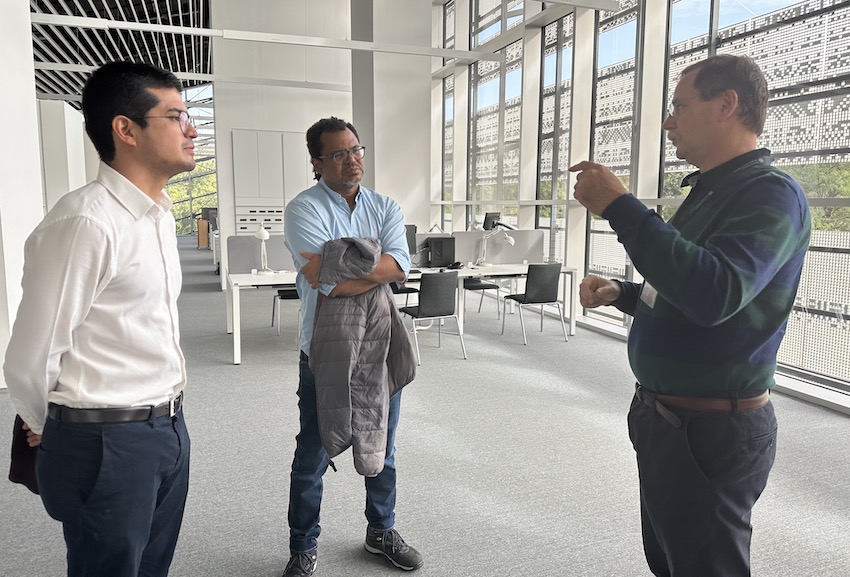
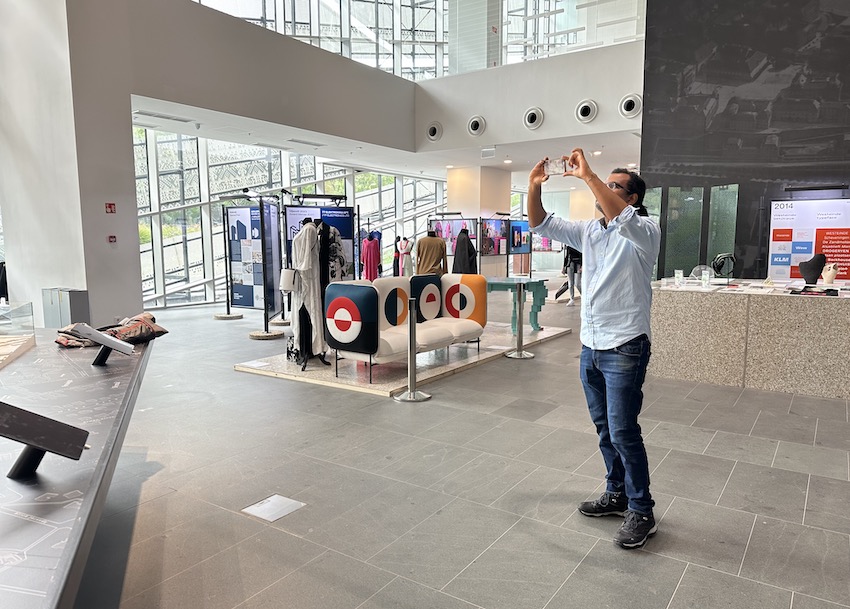
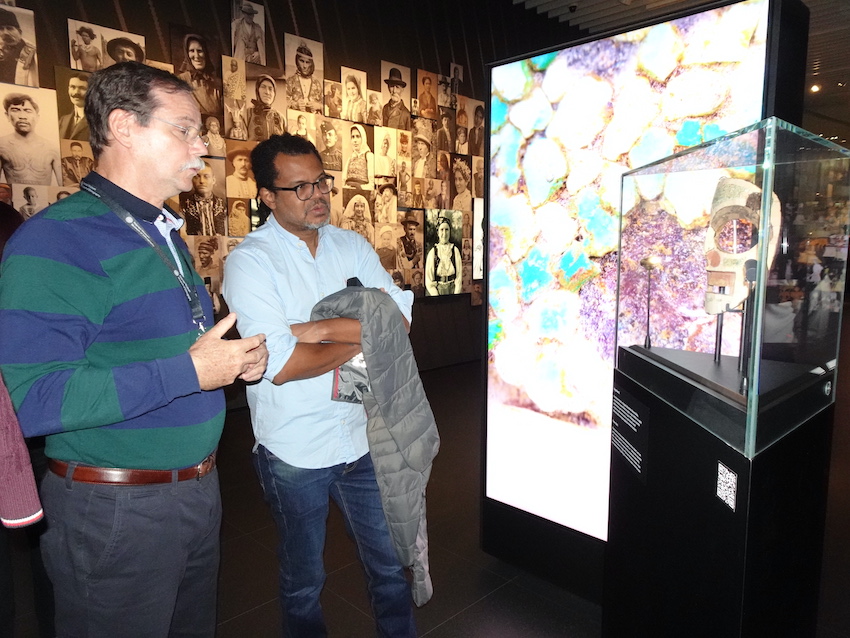
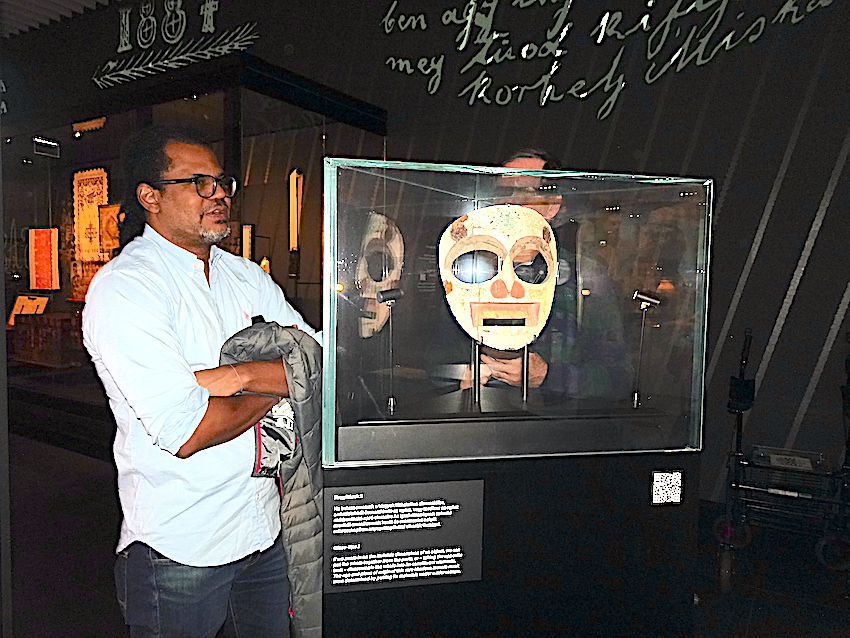
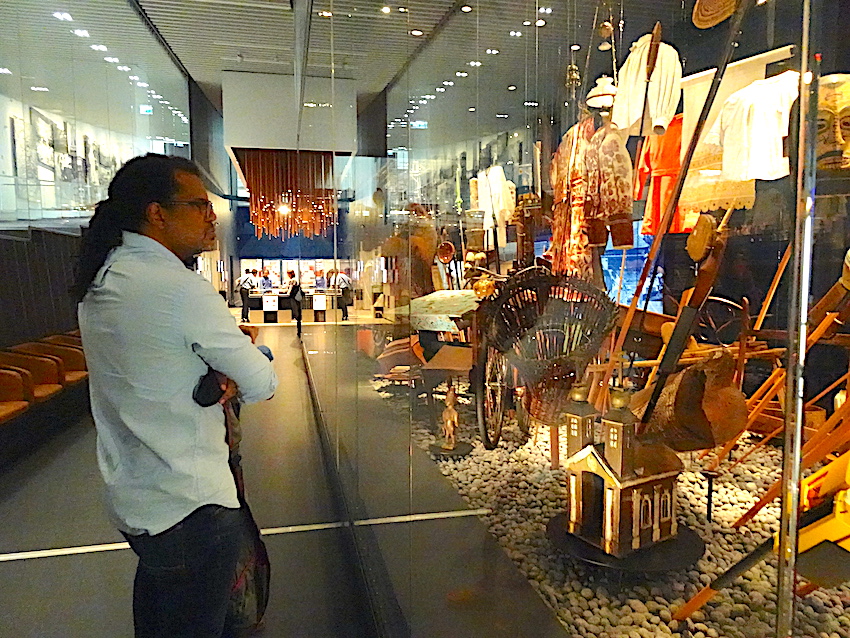
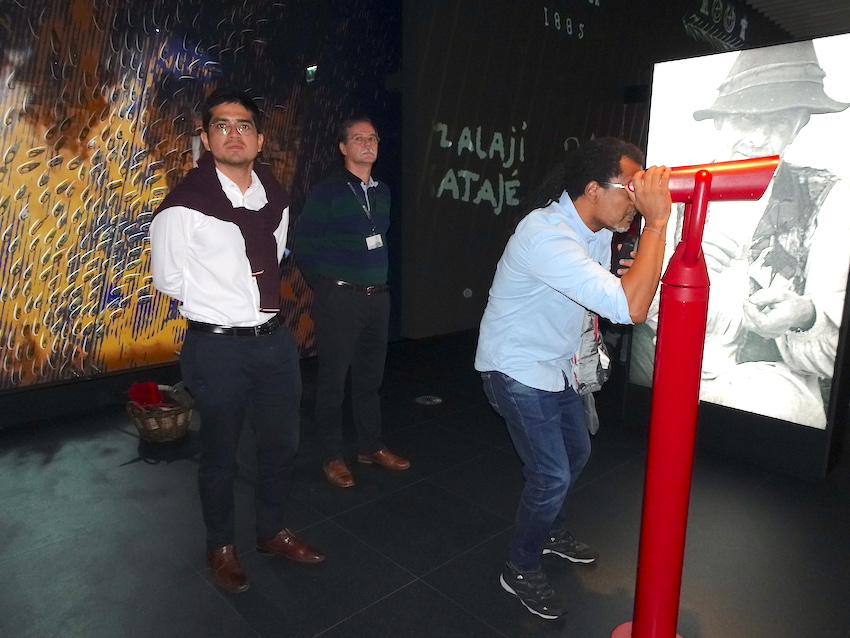
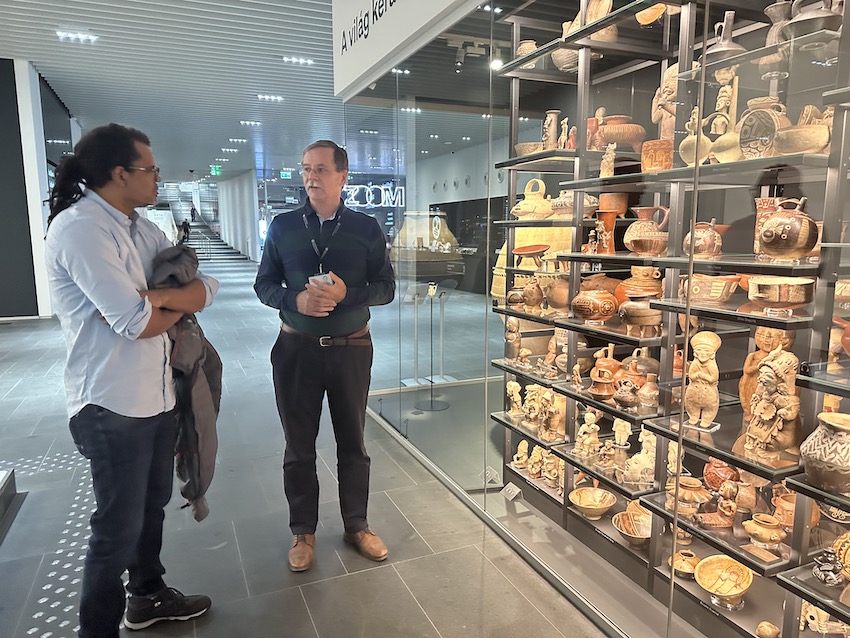
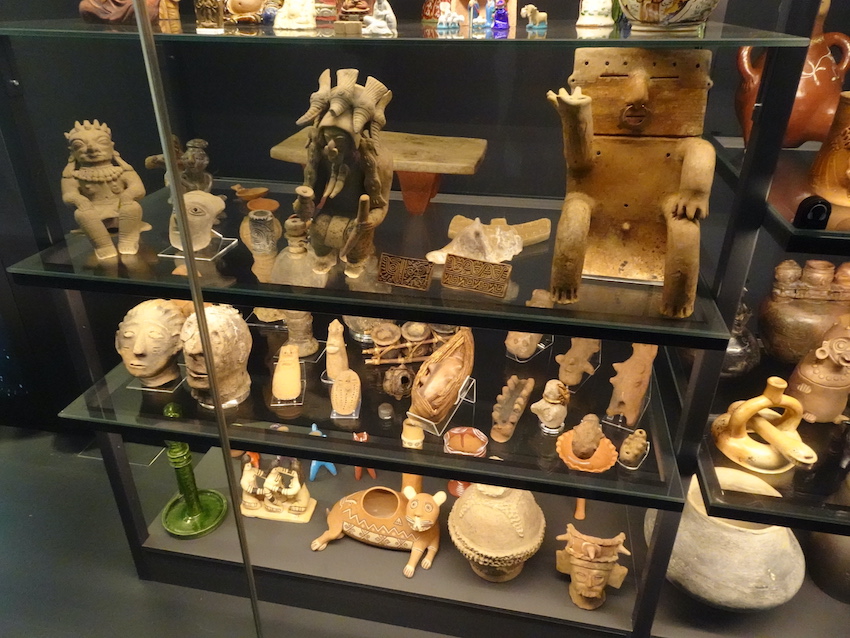
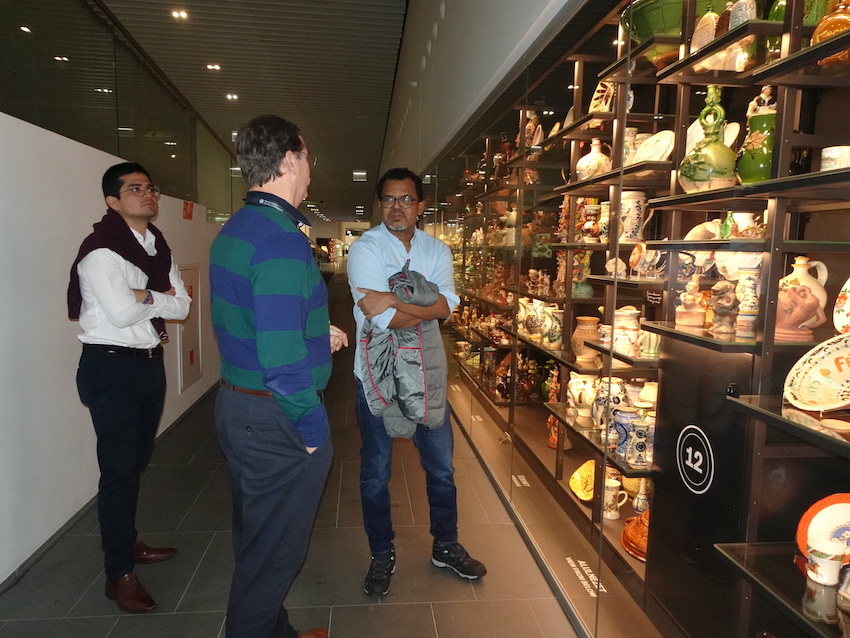
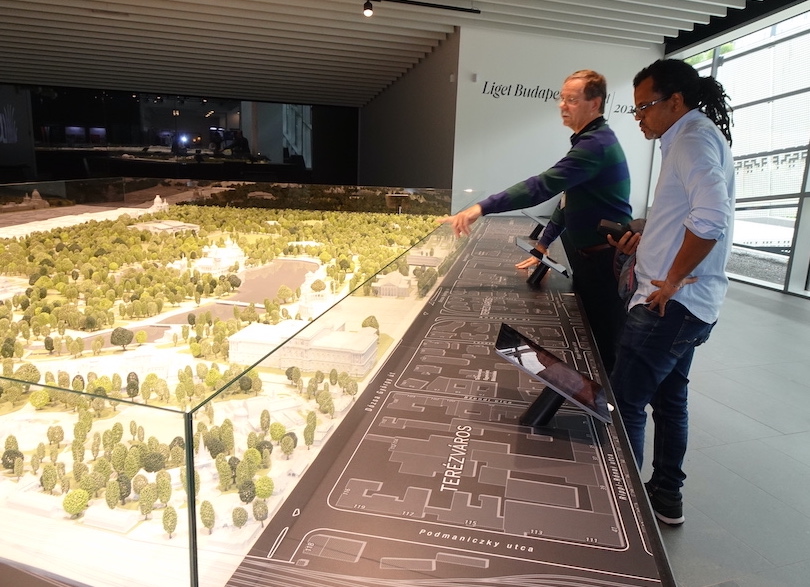
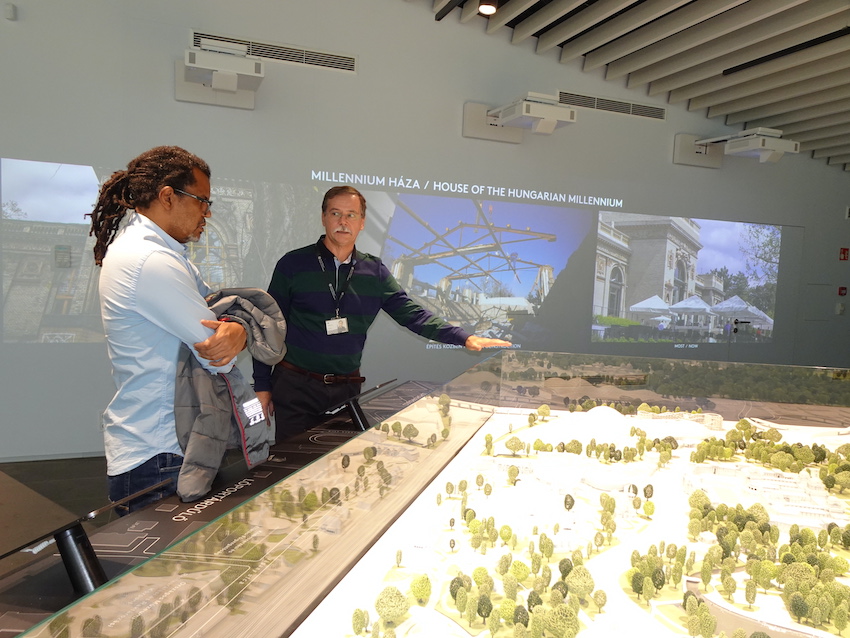
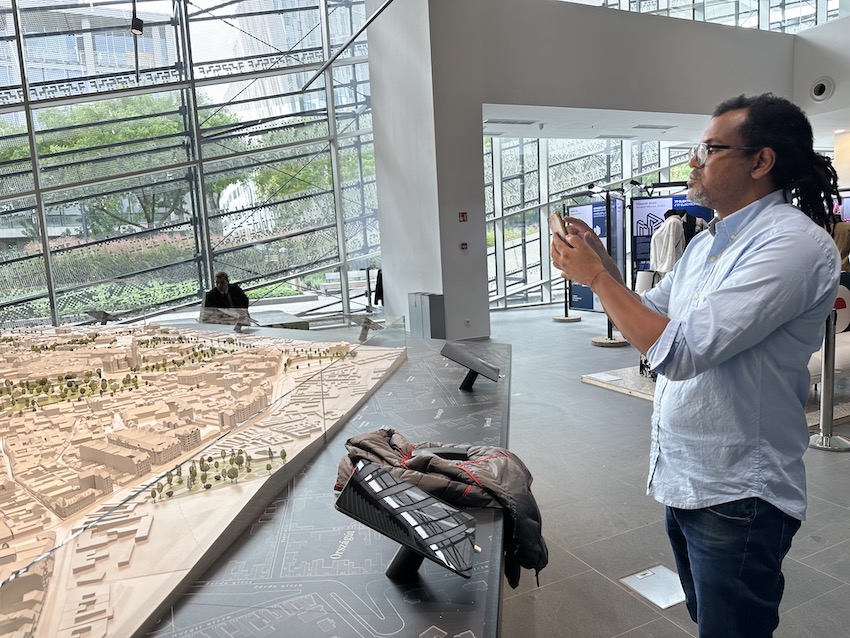
“It is not at all strange, then, that Hungary’s cultural perspective always extends beyond its current borders. The nation dispels nostalgia by drawing, whenever the occasion allows, the map of Hungary with the boundaries of the great homeland; turning the ancient regions and their culture into a fundamental part of the curatorial discourse of its museums, and creating – as it has done with aesthetic quality – a monumental and urban nomenclature that pays homage in every corner to writers who wrote in the Hungarian language.”
Professor Javier Ortiz Cassiani is an expert in the fields of ethnic and its influence on societies. Also, the cultural and social aspects of the different groups that compose Colombia, as a country with a high diversity of ethnic communities, are all linked to their own origin, history and cultural characteristics, which are given in their knowledge, customs and traditions, as well as their cultural expressions. He holds a PhD in History from the Colegio de México, a Master’s degree in History from Universidad de los Andes and is a Historian at the Universidad de Cartagena. He is a specialist in the history of culture and history of Afro-descendants and has published widely in that field. He has been an advisor to the Ministry of Culture on issues relating to heritage and Afro-descendant population.
Author of the books Bailar con las trompetas del apocalipsis, El incómodo color de la memoria, Un diablo al que le llaman tren, and co-author of Desorden en la plaza.
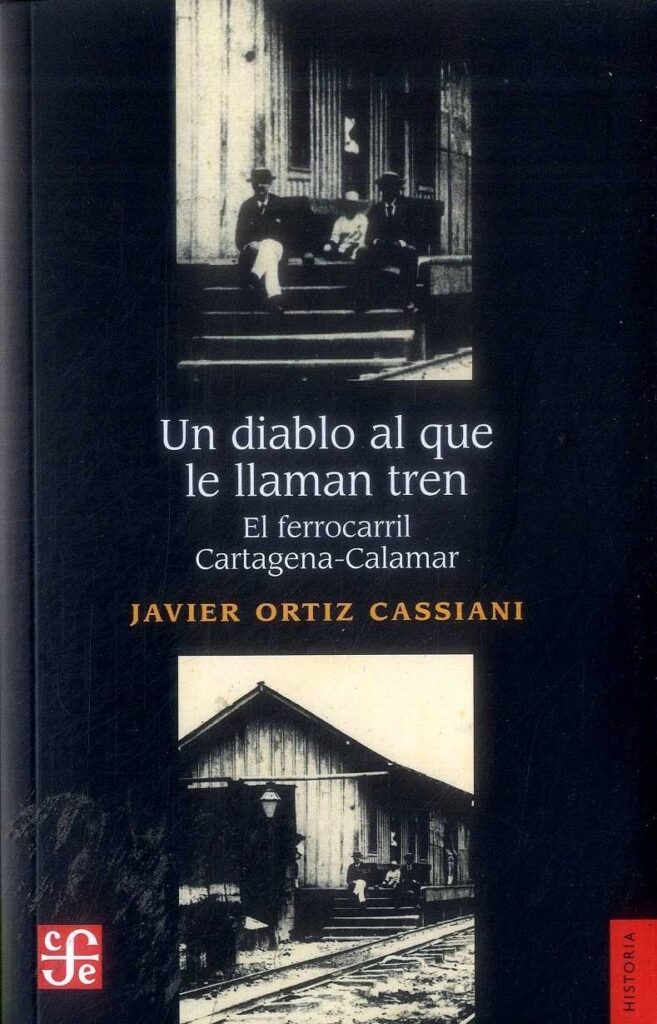

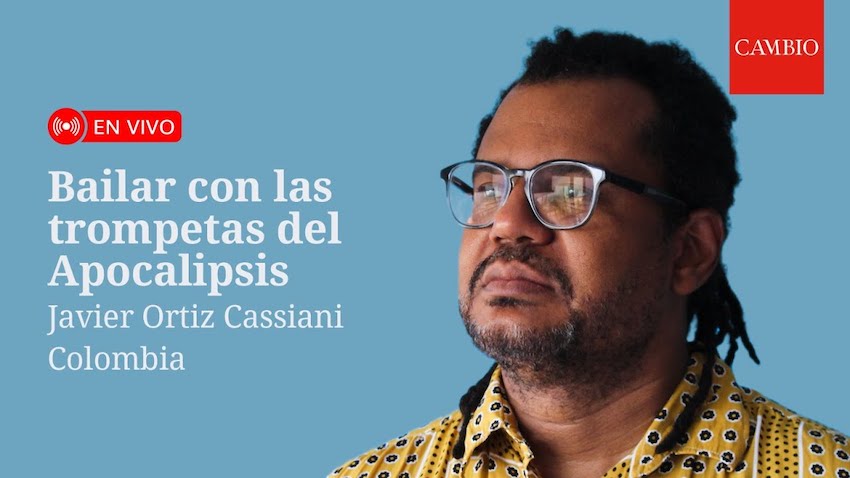
In 2014, he received the Afro-Colombian Prize of the Year. He also works as a columnist for the newspapers El Espectador and El Malpansante.
Source: Embassy of Colombia in Budapest
Photos by the Embassy of Colombia in Budapest, DPA, Facebook of Javier Ortiz Cassiani, Twitter of Vice President Francia Márquez Mina


